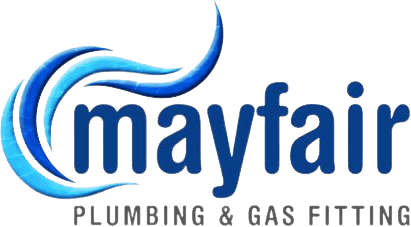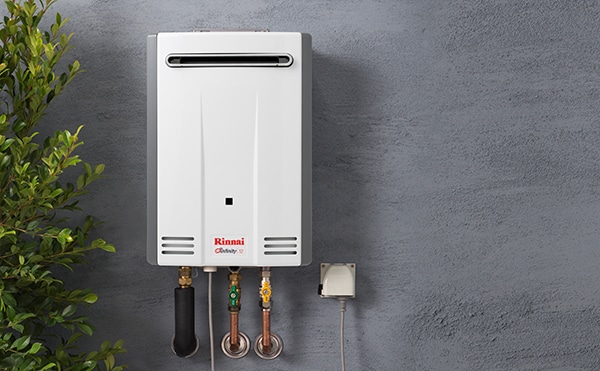As a local plumber in Adelaide, I’ve seen first-hand the evolution of hot water systems. One of the most common install we complete and is gaining popularity among homeowners is the tankless hot water system (also known as an instant hot water system or continuous flow system).
Known for its efficiency and cost-effectiveness, this system is changing the way we think about and use energy in our homes.
This article will provide a comprehensive understanding of how tankless hot water systems function. We’ll also discuss its benefits and why it’s a wise choice for homeowners.
We’ll look at the innovative technology and its potential to bring about a revolution in energy usage at home.
Points Of Note
- Tankless water heaters heat water instantaneously without the use of a storage tank.
- Cold water flows through a heat exchanger in the unit.
- A natural gas burner or an electric element heats the water.
- Tankless water heaters deliver a constant supply of hot water.
- Also see our article on heat pump systems.
Understanding the Basics of Tankless Hot Water Systems
I’m about to delve into the basics of tankless hot water systems, focusing on how they heat water on demand and can offer significant energy savings.
A tankless water heater, unlike traditional models, doesn’t store hot water. Instead, it heats water as you need it, which is a more energy-efficient method.
Here’s how tankless water heaters work: when you turn on the hot water tap, cold water travels through a pipe and into the heater. A heat exchanger within the heater then warms the water to the desired temperature. The heating process is fast, so the hot water supply doesn’t run out.
Tankless systems are particularly popular in Adelaide, where local codes support their installation. Understanding this process is key to maximizing the benefits of these systems.
The Operational Process of a Tankless Hot Water System
While I’m explaining the operational process of a tankless hot water system, it’s important to note that these systems heat water directly without the use of a storage tank.
When someone turns on the hot water tap, cold water flows into the unit. A flow sensor within the tankless water heater triggers the heating elements or gas burner, which heat the water instantly.
In accordance with Adelaide’s local codes and regulations, this process requires specific installations and safety precautions.
The beauty of tankless water heaters is they provide hot water only as needed, eliminating the energy losses associated with traditional storage units.
Understanding how a tankless water heater works can help you maintain the system and troubleshoot any issues.
The Role of Heating Elements in Tankless Systems
In a tankless system, the heating elements play a crucial role. They are responsible for instantly heating the water as it flows through the unit. These components, often electrical resistance heating coils, are what make a tankless hot water system so efficient. Their ability to rapidly heat water on demand is the reason many Adelaide homeowners are opting for tankless systems.
However, the role of heating elements in tankless systems doesn’t stop there. They also need to adhere to local codes and regulations, ensuring the system’s safety and efficiency. As an Adelaide plumber, I can affirm the importance of these heating elements.
Maintaining these elements is also crucial to prolong the lifespan and performance of the system. By regularly inspecting and cleaning the heating elements, homeowners can ensure that their tankless system continues to operate at its optimal level. This not only saves energy but also prevents potential issues that may arise from neglected or malfunctioning heating elements.
Energy Efficiency of Tankless Hot Water Systems
Having installed numerous tankless hot water systems, I’ve seen firsthand how they’re significantly more energy-efficient compared to traditional systems, given their ability to heat water on demand, thereby reducing unnecessary energy consumption.
Most tankless water heaters, especially gas tankless water heaters, use less energy since they only heat water as needed.
- Energy Efficiency: Tankless water heaters are designed to use less energy, making them an eco-friendly choice for your home.
- On-Demand Heating: Tankless water heaters deliver hot water instantly, eliminating the energy wasted to keep a tank of water heated.
- Gas Tankless Water Heaters: These are often more efficient than electric models, further reducing your home’s energy use.
In Adelaide, we’ve to comply with specific codes and regulations, but rest assured, I’ve got that covered. With the right installation, a tankless system can significantly reduce your energy bills.
Pros and Cons of Using a Tankless Water Heater
I’ve found that using a tankless water heater provides several advantages such as energy efficiency and space saving, but it’s also important to consider the downsides including higher upfront costs and potential overload issues.
A tankless water heater, as its name implies, doesn’t store hot water but heats it only as needed, providing a constant supply and considerable energy savings. However, the initial cost is higher than traditional units and if not sized properly, it could get overloaded and fail to meet demand. Adelaide’s local codes and regulations also need careful consideration during installation, often requiring a professional plumber’s expertise.
Yet, despite the cons, the long term benefits and energy efficiency of tankless water heaters still make them a desirable choice for many homeowners.
Sizing and Selection Criteria for Tankless Water Heaters
When it comes to the sizing and selection criteria for tankless water heaters, I’m looking at factors like flow rate, energy efficiency, and my home’s hot water demand. Here in Adelaide, we’ve certain codes and regulations that govern the installation of these systems.
- Flow Rate: This refers to the amount of water the heater can heat in a given time. It’s crucial to ensure that the heater can meet my home’s demand.
- Energy Efficiency: I’m considering the energy rating, as it affects the running costs. The higher the efficiency, the lower the cost.
- Temperature Control: A good tankless water heater should have an effective temperature control system. This feature allows me to adjust the water temperature to my liking, providing a comfortable and safe usage.
Being knowledgeable about these factors helps me make an informed decision.
Installation Guidelines for a Tankless Hot Water System
I’m considering three main factors for the installation of a tankless hot water system:
- The availability of a qualified installer
- Local building codes
- The location of the installation in my home.
In Adelaide, there’s a solid network of certified plumbers experienced in installing water heaters, including tankless systems. Understanding Adelaide’s local building codes is crucial, as these rules are designed to ensure safe water supply and efficient system operation.
As for the location, it needs to be accessible for maintenance and close to most-used water outlets to minimize lag time.
It’s clear that the installation guidelines for a tankless hot water system aren’t something to be taken lightly. It requires specialised knowledge and adherence to local building codes.
Maintenance Tips for Tankless Water Heaters
There’s a ton of maintenance tips for tankless water heaters, and it’s essential to follow them to ensure the longevity and efficiency of your unit. As an experienced plumber in Adelaide, I’ve spent years installing and maintaining these systems, and I can’t stress enough the importance of regular maintenance.
Here are three crucial tips:
- Always flush your tankless heater annually. It helps eliminate mineral deposits that can reduce efficiency.
- Inspect the system’s vents. Blocked or dirty vents can lead to reduced performance.
- Check for leaks regularly. Water or gas leaks can lead to serious problems.
Troubleshooting Common Issues in Tankless Water Systems
In my experience, several common issues can pop up in tankless water systems that need troubleshooting. The most common problems I’ve come across in Adelaide are insufficient hot water, cold water sandwiches, and system overloads.
Demand type water heaters can be a bit tricky to troubleshoot without proper training. It’s important to remember that proper maintenance can prevent many of these issues. Regularly flushing your tankless hot water system, for instance, can help prevent mineral buildup.
If you’re experiencing issues, it’s best to call a professional who’s familiar with Adelaide’s local codes and regulations. I can’t stress enough how critical it’s to have an experienced hand when dealing with troubleshooting common issues in tankless water systems.
Energy Saving Tips for Tankless Hot Water Systems
I’ve got a few energy-saving tips for tankless hot water systems, and they can drastically reduce your monthly bills.
Whether you have a gas water heater or electric tankless water heaters, here’s how you can maximize their efficiency:
- Regular Maintenance: Flushing your system annually, especially in areas with hard water, prevents mineral buildup and improves performance.
- Optimal Temperature Setting: Set your water heater to 70 degrees celsius. Every few degrees reduction can save you up to 5% in energy costs.
- Install Low-Flow Fixtures: These reduce the demand for hot water, thus, lowering your energy consumption.
Cost Analysis of Tankless Vs Traditional Water Heaters
I’m currently comparing the overall costs of tankless and traditional water heaters, and it’s clear that several factors come into play.
Tankless heaters have a higher upfront cost, but they make up for it by being more energy efficient and having a longer lifespan.
Traditional water heaters, or storage tank water heaters, are cheaper initially but may cost more in the long run due to higher energy usage and shorter life expectancy. They also take up more space and may not produce hot water as efficiently during high demand.
In my cost analysis, considering Adelaide’s regulations and the efficiency of a tankless system, the latter seems more cost-effective over time.
Future Trends in Tankless Hot Water Systems
Looking at the future trends in tankless hot water systems, it’s clear they’re becoming more energy-efficient. Future models are focusing on reducing their energy consumption, contributing to lower utility bills. The integration of smart technology is another trend. You’ll be able to control your hot water system remotely, offering convenience and further energy savings. Expect manufacturers to develop methods that decrease environmental impact as part of their green initiatives.
As a seasoned professional who’s familiar with Adelaide’s local codes and regulations, I believe these future trends in water heating will make tankless water systems more appealing. Despite their initial cost, their energy efficiency and constant flow of hot water are significant advantages.
Frequently Asked Questions
What Are the Environmental Impacts of Using a Tankless Hot Water System Compared to Traditional Water Heaters?”
As an experienced plumber, I’d say tankless hot water systems are more environmentally friendly than traditional heaters. They reduce energy consumption and greenhouse gas emissions, as they only heat water when it’s needed.
What Type of Safety Features Are Typically Included in Tankless Water Heaters?
As a seasoned plumber, I can tell you tankless water heaters often include safety features like auto shut-offs to prevent overheating, sensors to detect gas or water leaks, and exhaust fans for ventilation.
How Does the Performance of a Tankless Hot Water System Vary in Different Climates or Weather Conditions?
As a seasoned plumber, I’ve noticed tankless systems perform differently in varying climates. Cold weather can reduce the flow rate, as the unit works harder to heat up colder incoming water. It’s a common observation.
Can I Install a Tankless Hot Water System in an Apartment or Smaller Living Space?
Absolutely, I can install a tankless hot water system in smaller spaces like apartments. They’re compact, efficient, and ideal for limited space. Plus, they comply with Adelaide’s local codes and regulations.
Are There Any Specific Brands or Manufacturers of Tankless Hot Water Systems That Are Recommended?
Yes, I’d recommend brands like Rinnai, Bosch, and Rheem for tankless hot water systems. They’re reliable, efficient, and comply with Adelaide’s local codes. Always remember to get a professional for installation.
Final Notes
In conclusion, making the shift to a tankless hot water system in Adelaide can be a game-changer.
Not only does it give you on-demand hot water, but it’s also energy efficient, saving you money in the long run.
While there are some cons and potential issues, being informed and proactive can mitigate these.
Bottom line – it’s a smart, future-forward choice for homeowners looking to boost efficiency and cut costs.






